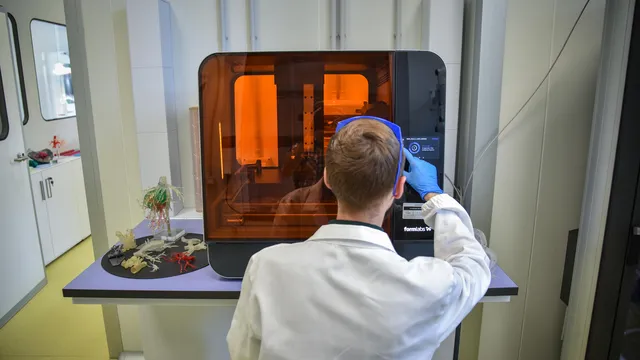In a study presented at the annual meeting of the American Association for Cancer Research, researchers reported encouraging early results from research investigating a potential way to help some cancer patients avoid surgery, Time magazine reports.
According to the early study results, published simultaneously in the New England Journal of Medicine, 92% of patients who received only immunotherapy to help their own immune systems shrink their tumors—and without surgery, which is usually the standard treatment for them—showed no signs of disease after two years.
71-year-old Maureen Sideris is one of those patients. The New York resident was diagnosed with gastroesophageal junction cancer in 2022 after noticing difficulty swallowing and digesting food. When she visited an oncologist, he told her that surgery to remove the tumor was the best treatment option. He also informed her that after the surgery, she would need chemotherapy and radiation to destroy as much of the cancer as possible.
"I was in a panic," Sideris shares.
For a period after the surgery, she was unable to speak or lie on her back to sleep. Then came the chemotherapy and radiation.
"The recovery went through many stages," she adds.
But based on the genetic characteristics of her cancer, she was informed about a study of a new approach developed by Dr. Andrea Cercek, head of the colorectal cancer department at Memorial Sloan Kettering Cancer Center.
Sercek was testing whether people like Sideris could be treated with a checkpoint inhibitor, a relatively new type of cancer treatment that frees the body's immune cells to recognize and attack cancer cells. If the treatment worked, it would mean that Sideris might not have to undergo surgery.
"They told me it was all experimental — 'Are you okay with that?' I said, 'Sign me up,'" she said.
Sercek had not yet treated people with cancer like Sideris's with this method. But in 2024, she published encouraging results from a small study of people with rectal cancer in which all 42 patients who received the checkpoint inhibitor dostarlimab as a monthly infusion were cured of their cancer — some even remained in remission after four years. Now she was investigating whether the same effect could be achieved in people with different types of cancer, including colon, esophageal, stomach, urothelial, small intestine, endometrial, and, in the case of Sideris, gastroesophageal junction cancer.
According to the new results, among patients with cancer other than rectal cancer, 64% showed no signs of residual disease on imaging or endoscopic examination after one year.
When patients with rectal cancer and cancer other than rectal cancer were combined, 92% did not have a recurrence of their cancer after 2 years. Even among those who did have a recurrence, the treatment reduced the number or size of their tumors.
"In the end, everyone benefited. No one was harmed. This confirms that therapy like this can lead to significant clinical complete responses, tumor stage reduction, and significant improvements in patients' quality of life," Sercek said.
This is the latest evidence of the power of immunotherapy and other new methods that doctors are testing to use the immune system while avoiding more severe and invasive treatments such as surgery, chemotherapy, and radiation therapy. Although immunotherapies also have side effects, including fatigue, skin rashes, and, in a small number of patients, hypothyroidism, they are often easily manageable. For Sideris, the monthly 45-minute infusion for 9 months was "harmless."
"That was the easiest part of the whole thing," she says.
Sideris continues to undergo imaging tests to detect small clusters of cells or hot spots that could turn into cancer; if any appear, she has them removed endoscopically.
"I see this as using an incredibly effective approach in the early stages of the disease, where we can use immunotherapy and, in the majority of these tumors, replace standard treatment and surgery," Sercek says.
She plans to continue studying Sideris and the other participants to determine whether the benefits translate into longer survival, but believes the results "will likely improve long-term outcomes."
She also plans to study those who did not respond to immunotherapy to better understand how to extend the benefits to them.
Based on the results of an earlier study involving people with rectal cancer, the National Comprehensive Cancer Network has already included dostarlimab in its guidelines for treating people with the specific genetic mutations studied by Sercek. The US Food and Drug Administration has given the drug, manufactured by pharmaceutical company GSK, fast-track approval for the treatment of these types of cancer. It has already been approved for the treatment of endometrial cancer with the same genetic mutation.
Sercek hopes to replicate the results in other types of genetically altered tumors. She is encouraged by the latest results, as well as the fact that many of the patients in the current study had cancer that was more advanced and had spread to the lymph nodes.
"These weren't baby-sized tumors. There were definitely some that were stage III. But we didn't see any differences in tumor stage and patient response. We think that as long as there's no distant disease or metastasis, patients can benefit from the treatment," she adds. | BGNES

 Breaking news
Breaking news
 Europe
Europe
 Bulgaria
Bulgaria







